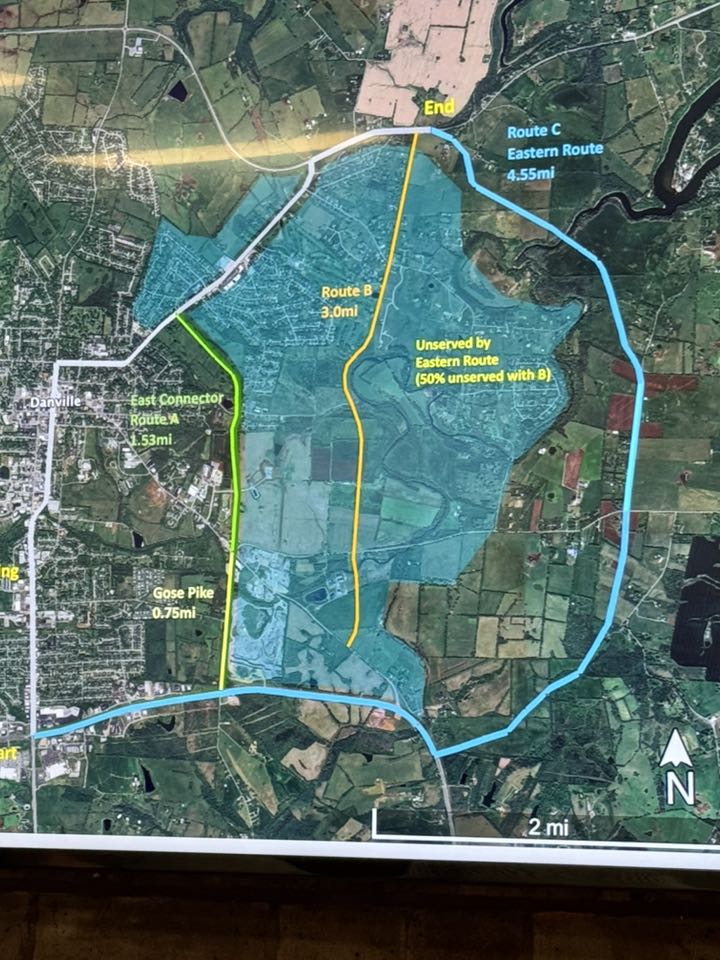Boyle-Mercer interlocal jail agreement deemed ‘lawful’
Published 4:42 pm Friday, September 4, 2020
An attorney for the Kentucky Association of Counties believes that the 23-year-old Boyle/Mercer interlocal agreement concerning the jail is “lawful.”
Rich Ornstein, staff attorney for KACo met with the Boyle-Mercer County Joint Jail Committee on Tuesday and addressed concerns that Jailer Brian Wofford and some committee members have recently voiced about the contract on who ultimately runs the jail, who is liable in case of a lawsuit, what is the function of the joint jail committee and if the contract was legal because of some wording.
Ornstein said after reading the document several times, through research of state rules, regulations and statutes and speaking with local officials, “In my mind this interlocal agreement is lawful. … There’s nothing in here, in my mind, that violates state law.”
Trending
He added though, if he could go back in time, “There are things that … I would have said to change some words,” in the document.
For example, the agreement refers to the Boyle County Jailer as the chief operating officer, which is how a regional jail is organized, he said. But the BCDC is not a regional jail. It’s a local jail and “the county jailer is the county jailer. You can call an apple an orange, but it’s still an apple,” Ornstein said.
“I would have said the Boyle County Jailer shall have full care, custody and control of the jail.”
“A jail is a reflection of their jailer … If you’ve got a good jailer things can be really, really nice, and you all have been very lucky with the last two jailers. The current and the prior have run really good jails.”
Ornstein told the group, “Regardless of what you all decide to do, the rules and regulations of the jail, ultimately the jailer is still going to have the care, custody and control of the jail.”
Ornstein described the joint jail committee as “more of an advisory committee to make recommendations. Ultimately fiscal court controls the fiscal affairs of their respective counties.”
Trending
As committee members meet and discuss the “transition” of how it wants to move forward with working together on financing the jail, Ornstein suggested, “You don’t have to think about everything that needs to be in a policy, everything that needs to be in an ordinance. You don’t want to always put yourself in a corner where you don’t have the discretion to go left or go right. … That doesn’t always work. People elected you all to be able to make those decisions as they come up.”
When making the annual jail budget, there is state law and statute “that require the county judge-executive, treasurer and jailer get together and prepare a draft budget for fiscal court. But that doesn’t state that other members can’t be present and part of it,” Ornstein said. “This agreement, Boyle County has basically said, ‘We’d also like the Mercer judge and Mercer attorney to be involved in budget prep.’”
He added, “There could be some changes on how it’s worded, but the actual concepts are solid.”
Regarding liability issues, “You all have had historically a very nice jail. … You all don’t have the claims (lawsuits) that a lot of other jails have. That’s because it’s a great facility.”
Ornstein said, however, that in a couple of years if Wofford decided not to run again, “and you all ended up not getting someone as good as him,” many more claims could be filed against the jail and both fiscal courts would end up paying more in insurance rates.
“You all operate together. When it comes time to run the jai, the jailer does it.”
The interlocal agreement “is a good agreement, but could be tweaked because it’s 23 years old.” Ornstein said. “It could be a model for the Commonwealth because you all are working together to deal with the issue.”
He added, “You all have been able to work together to build a jail, pay off a bond, update the jail… and only a couple of COVID cases.”
At the end of the session, Boyle County Judge-Executive Howard Hunt said, “I’m still encouraged by what I heard. … I would like to at least continue another few meetings … to see if there are some things we want to change,” which may include “minor tweaks, some verbiage about the committee’s oversight or approval.”







